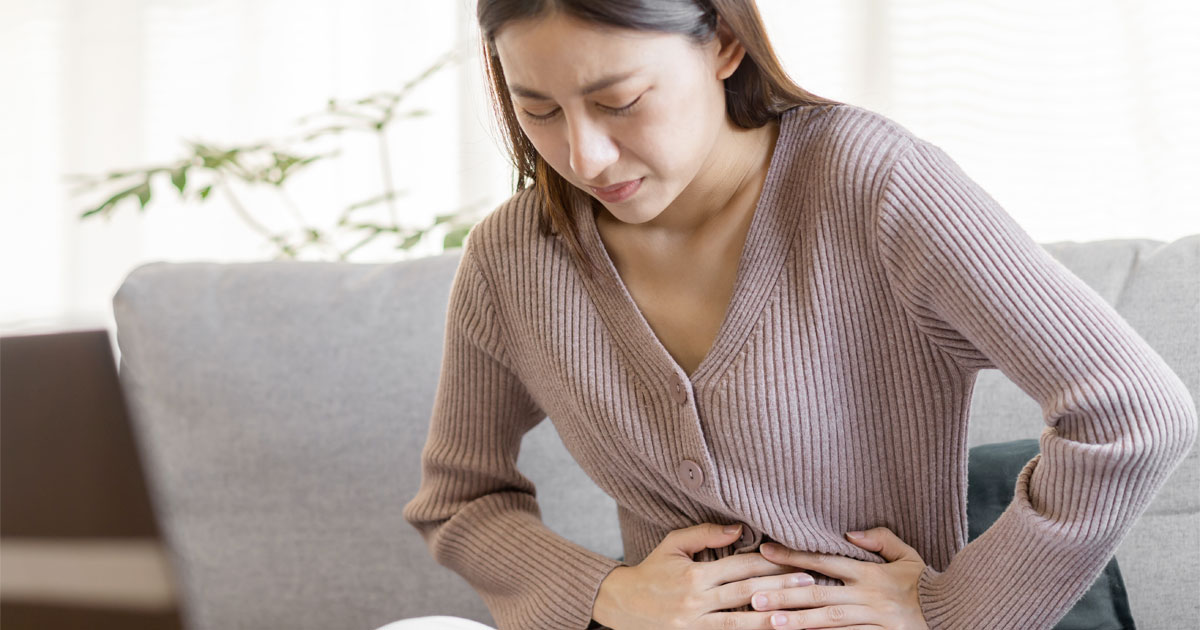
Irritable Bowel Syndrome is a digestive disorder that’s also known as IBS. It’s a chronic condition that can negatively impact the quality of your life, limit your activities and cause you a great deal of pain. IBS is a common digestive problem, and is one of the most frequent complaints that bring people to their doctor.
IBS may also be called spastic colon or mucus colitis, and is considered to be a problem with the function of your intestines. It’s generally caused by an issue with the motility of your gut, because with this disorder the muscle contractions in your intestines are either speeded up or slowed down. This causes abnormal movement of food and waste through your bowels and can generate a variety of symptoms—most commonly episodes of diarrhea or constipation. These can occur as alternating episodes, and can also occur with cramping pain, bloating, gas and nausea.
As a functional issue, IBS doesn’t cause tissue damage, nor is it inflammatory bowel disease. However, people with IBS have an increased risk for developing colon cancer. Because IBS involves a variety of symptoms that tend to be different for each sufferer, it’s considered to be a syndrome. Additionally, the symptoms of IBS may flare and diminish, and for some, their symptoms may go into remission for long periods or disappear completely.
What Causes IBS?
While experts aren’t completely clear as to what causes IBS, they have uncovered several factors that are often related to it, including:
- Changes in something called your gut/brain axis. Essentially scrambled signals between your brain and your digestive system can cause your gut to overreact and cause IBS symptoms.
- How the muscles in your intestines contract. Sluggish muscle action in your gut slows intestinal movement, causing constipation; and overactive muscle contractions speeds up your gut and leads to diarrhea.
- Some people develop the symptoms of IBS after they’ve had severe bacterial or viral-caused diarrhea, leading doctors to suspect that certain intestinal infections may be a trigger for this condition.
- Despite not being an inflammatory condition, some people with IBS have high levels of certain immune-system cells in their intestines which may be an underlying cause of their symptoms.
- Scientists suspect that the beneficial bacteria in your gut that supports digestion may also play a role in IBS. They’ve found that the intestinal microbes in people with IBS are different than those people without this condition.
While not a cause of IBS, people with this condition often find that certain foods can trigger their symptoms. Some problem foods include dairy products, gluten in wheat and other grains, vegetables in the cabbage family, beans and legumes, citrus fruits and carbonated beverages. In addition, while stress isn’t necessarily the cause of IBS, emotional upsets and highly stressful situations can act as a trigger or aggravate your symptoms. Some women with IBS have also found that hormonal fluctuations can affect their symptoms, with worsening episodes prior to or during their period.
Treating IBS with Acupuncture and Chinese Medicine
Because IBS involves a variety of fluctuating symptoms and a number of underlying causes, treating it effectively often encompasses a number of strategies. Fortunately, IBS often responds well to Chinese medicine treatments combined with dietary and lifestyle changes, including the following:
- Acupuncture, which can help regulate intestinal motility and reduce stress. In fact, a number of research studies have documented that acupuncture can have a significant impact on IBS symptoms, including the reduction of abdominal pain and bloating, as well as improving the rate and consistency of bowel movements. Researchers believe that acupuncture may work for IBS symptoms because it affects the part of your nervous system that regulates intestinal motility and muscle contractions. It’s also important to know that acupuncture is very effective in treating the emotional triggers for IBS, including stress and anxiety.
- A practitioner of Chinese medicine may also prescribe an herbal formula for your IBS. The use of herbs and herbal formulations have been developed over hundreds of years of clinical experience, and each herb in the Chinese formulary is used for its specific actions. When treating IBS, your practitioner will prescribe a combination of herbs, called a formula, which is based on your specific symptoms and health history. Some early scientific evidence suggests that the use of Chinese herbs can help relieve cramping, bloating and diarrhea associated with IBS.
- Diet can also have an impact on your IBS symptoms. Your practitioner can help you identify triggers and develop a nutritional plan to help control symptoms. Chinese food therapy is based on choosing or avoiding certain foods based on your specific symptoms, health history and diagnostic patterns.
A final word in managing your IBS is knowing that good self-care is crucial. Identifying and avoiding triggers, getting good sleep, managing stress and physical activity are all important, especially when good self-care is combined with Chinese medicine treatments that are tailored to your specific symptoms and lifestyle.

Cindy Chamberlain is an acupuncturist in Overland Park, KS and the founder of Eastern Healing Solutions, LLC. She is licensed in Kansas and Missouri and has been practicing traditional Chinese medicine since 1996.


